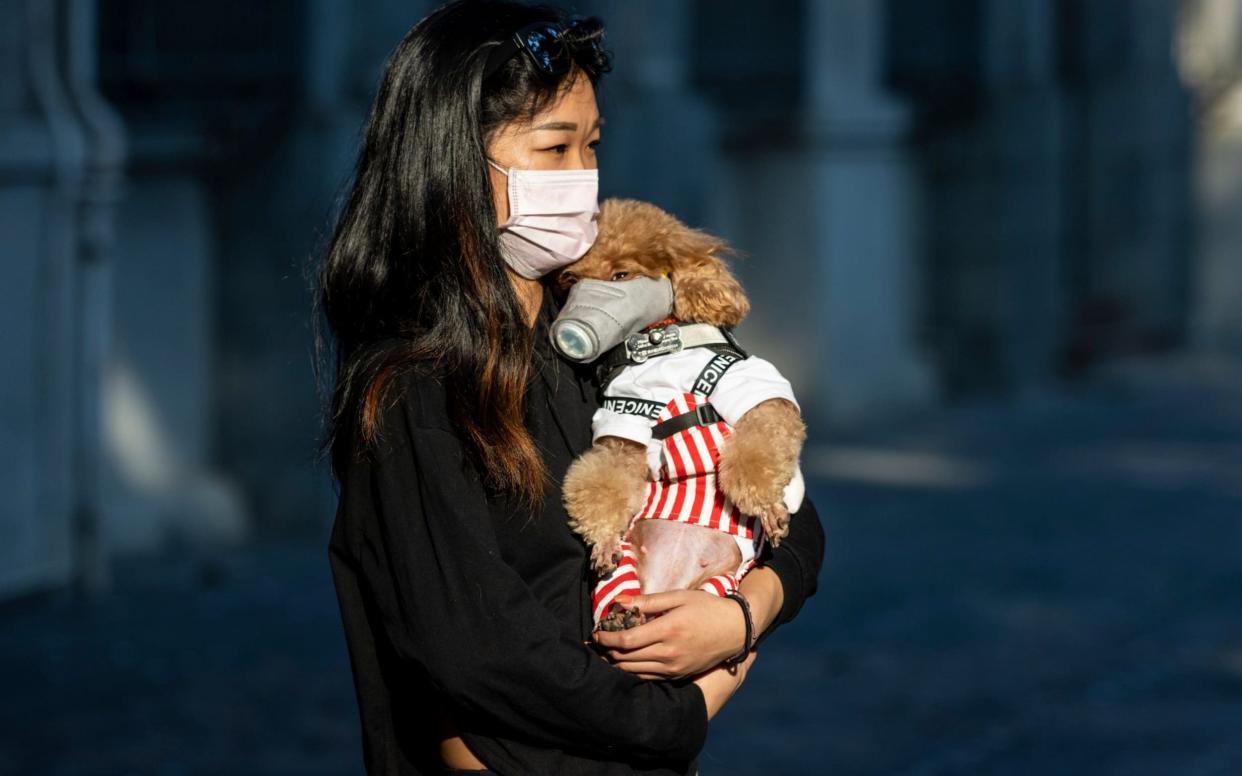Experts confirm human to animal spread of coronavirus

Experts have confirmed the first known case of human-to-animal transmission of the coronavirus after a Pomeranian dog in Hong Kong was found to have been infected with low levels of the disease.
Last week the dog, whose 60-year-old human companion is in hospital with the illness, was placed under quarantine after nasal and oral samples tested “weak positive” for Covid-19. This finding sparked much scepticism from scientists around the world who said it was unlikely the disease could jump species so quickly.
Hong Kong authorities said all pets whose owners test positive for the coronavirus should be put under quarantine.
The dog was first tested on February 26 and now three further tests have confirmed that the Pomeranian has low levels of infection.
Experts from the University of Hong Kong and the World Organisation for Animal Health have “unanimously agreed” that this is a case of human-to-animal transmission, a spokesman for Hong Kong’s Agriculture, Fisheries and Conservation Department has said.
The dog has not shown any signs of disease and the Hong Kong authorities have not said why the dog was tested in the first place.
A second dog is also under quarantine at the department’s animal holding centre but has tested negative for the disease.
The department will continue to closely monitor the Pomeranian who will only be returned to its owner when the test result is negative, authorities have said.
The Hong Kong government said that there is no evidence that pets can transmit Covid-19 to their owners or that they can become sick.
The spokesman added: “Apart from maintaining good hygiene practices, pet owners need not be overly concerned and under no circumstances should they abandon their pets.”

Pets have been collateral damage in the coronavirus outbreak after some were stuck starving in their homes when their owners were unable to return to look after them when their cities were put in lockdown.
Last week scientists said it was unlikely that pets could pick up the disease from humans, with Jonathan Ball, professor of medical virology at the University of Nottingham, describing testing of the dog as a “red herring”.
Today he said the new evidence emerging from Hong Kong was more convincing but he still urged caution.
“I think how relevant it is to the human outbreak is questionable. Most of the outbreak around the world has been driven by human-to-human transmission.
“I doubt it could spread to another dog or a human because of the low levels. But obviously we need to find out more, but we don’t need to panic. The real driver of the outbreak is humans,” he said.
Pet owners in Hong Kong are being urged to adopt good hygiene practices including hand washing before and after being around or handling animals, their food, or supplies and to avoid kissing them.
Daniella Dos Santos, president of the British Veterinary Association said that during the severe acute respiratory syndrome (Sars) outbreak in 2002 to 2003 that affected Hong Kong particularly badly a small number of cats and dogs picked up the virus.
"These animals did not transmit the virus to other animals of the same species or to humans.
"We are particularly keen not to cause unnecessary concern that could lead to pet abandonment. We would emphasise that at the moment there remains no evidence that pet animals can be a source of infection of Covid-19 for humans or other animals," she said.
Protect yourself and your family by learning more about Global Health Security.

